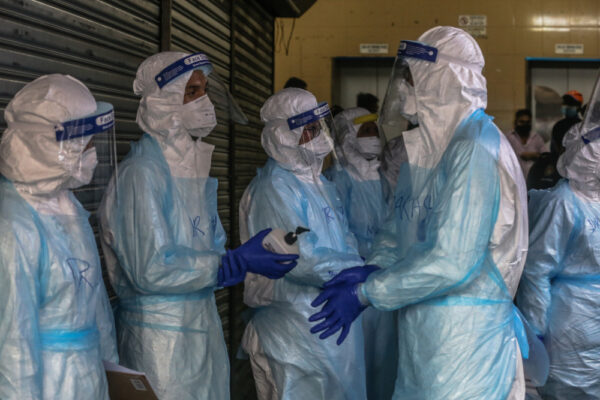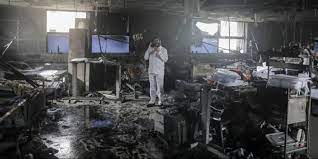Chemical techniquesrelated to systematic transformation of chemicals are useful energy. This involves the study ofmical properties, reactions and equipment, and its influence on other entities. Chemical engineers apply various techniques in their studies and build their theoretical backgrounds to develop new equipment and products and for safety measures.
In the present, there is a large demand for skilled chemical engineers and trained. Therefore this demand for professionals has caused several training institutions throughout the country. Every year, thousands of students are initiated and trained at this institute. Most of these graduates found the work right after completing their studies in this course. A number of good chemical engineering professionals are also appointed by various industries throughout the country to maintain safety standards, develop new equipment and products, and develop environmental control laws and pollution.
In addition to being involved in the industrial sector, chemical engineers are also recruited by other institutions on behalf of public safety. These professionals are entrusted with the responsibility of implementing policies related to preventing disasters such as storms, earthquakes, floods, droughts, etc. They must provide public assistance and safety. They are responsible for providing important information about the response system in various situations, and they act as the first respondent when the disaster attacks.
Chemical techniques are related to concepts such as environmental protection, health, industrial design, cost, safety, and productivity. Chemical technology is exposed to various topics such as nanotechnology, biotechnology, solid chemical synthesis, environmental hygiene, food additive regulation, radiation protection, and work safety. Chemical techniques are also related to conversion of scientific knowledge in practical workshops and field trials. These projects increase knowledge and assistance in designing effective safety equipment and equipment. They play an important role in providing solutions to critical safety problems. Chemical engineering projects include processes such as process development, production optimization, quality control, cost optimization, and waste processing.
Chemical Engineering offers a number of programs that are in accordance with the requirements of a diverse series of industries. It includes pharmaceutical engineering, biochemistry and polymer science, nanotechnology, eductology, and many others. Pharmaceutical techniques focus on developing drugs that can fight against crucial diseases. Because of the importance of these drugs, many drug manufacturing plants operate throughout the world.
In the field of nanotechnology, chemical engineers are involved in the process of embracing artificial materials that can withstand harmful environmental conditions. These materials consist of protein and DNA strands. They use different techniques to produce artificial materials. They use various security standards to ensure safe material for human use. The automation system is used to produce safety gears and other safety equipment on industrial and commercial sites.












![Have you been encountering the [pii_email_2c5d108980d117c8ca52] error while trying to send or receive emails using your Outlook account, you’re not alone. It’s a standard Outlook error that sometimes gets triggered thanks to network connectivity issues. However, several other factors also can cause you to run into the said error. The good news is that you simply can troubleshoot this error by yourself. during this guide, we are getting to mention various factors that cause the PII error and what methods you'll utilize to repair it. So, with none further ado, let’s start . What Causes the [pii_email_2c5d108980d117c8ca52] Error in MS Outlook In general, the error occurs when MS Outlook fails to determine a secure reference to the e-mail server. But, as we mentioned earlier, there are many other reasons which will trigger this error also . a number of these reasons include: Your device isn't connected to a lively Internet connection Your Outlook profile has been damaged thanks to external factors There are incorrect antivirus configurations on your PC FIles on your POP3 server are damaged How to Fix [pii_email_2c5d108980d117c8ca52] Error So, now that you simply know what triggers the [pii_email_2c5d108980d117c8ca52] error in Outlook, let’s take a glance at the solutions that’ll assist you fix it. Also examine the way to fix outlook [pii_email_316cb5e2e59f1ce78052] error Check Your Internet Connection Since a poor network connection is that the primary explanation for the error, start by checking your Internet connection. confirm that your device has active Internet connectivity. you'll try accessing other online services to ascertain if the web is functioning or not. Change Antivirus Configurations If you've got recently installed an Antivirus program on your PC, it'd be configured to automatically scan emails. If that’s the case, the Antivirus will restrict the Outlook app from functioning properly. So, confirm to vary the Antivirus Configurations by disabling the “Email Scanning” feature. Reinstall/Update Outlook Reinstalling or updating Outlook to the newest version is yet one more effective thanks to fix the [pii_email_2c5d108980d117c8ca52] error. When you’ll reinstall the app, all the damaged temporary files are going to be deleted and therefore the root of the matter are going to be eliminated also . Clear Unnecessary Emails from Outlook Folder If your primary inbox has too many unnecessary emails, they’ll cause bandwidth issues. this is often the rationale it’s always advised to clear the unnecessary emails from your Outlook folders. While you’re at it, confirm to clear the Trash also . this may help your Outlook app to deliver optimal performance. Conclusion So, if you’ve been encountering the [pii_email_2c5d108980d117c8ca52] error for a short time now, the above-mentioned will assist you fix the matter . Follow these tricks and access your Outlook account with none hassle.](https://tomtomworks.com/wp-content/uploads/2021/09/How-to-fix-outlook-pii_email_2c5d108980d117c8ca52-er-200x200.webp)

![How To Fix [pii_email_71e6bcfa8a2bee2aa151] Erro](https://tomtomworks.com/wp-content/uploads/2021/09/How-To-Fix-pii_email_71e6bcfa8a2bee2aa151-Erro-200x200.jpg)




